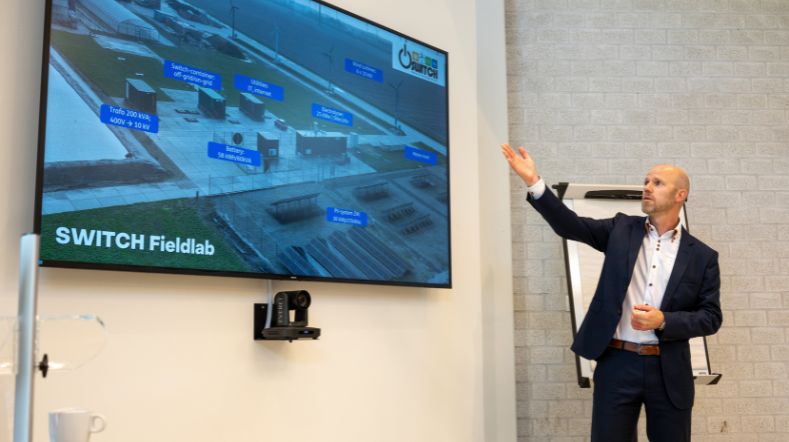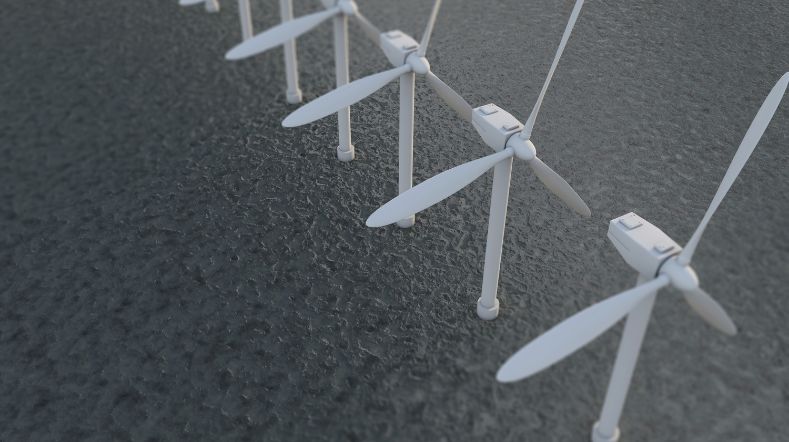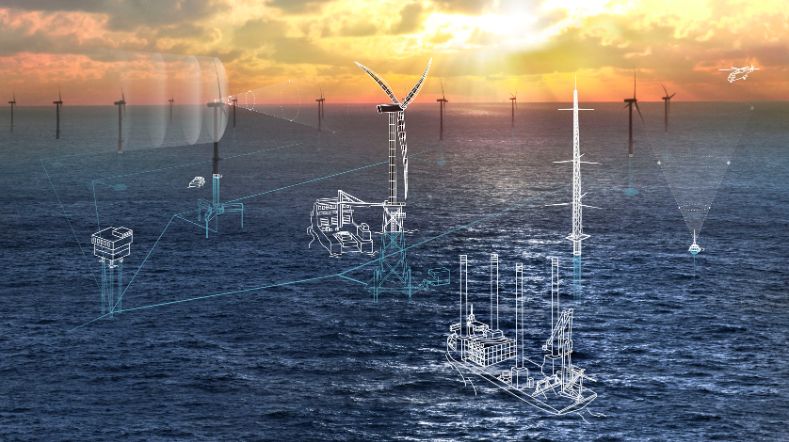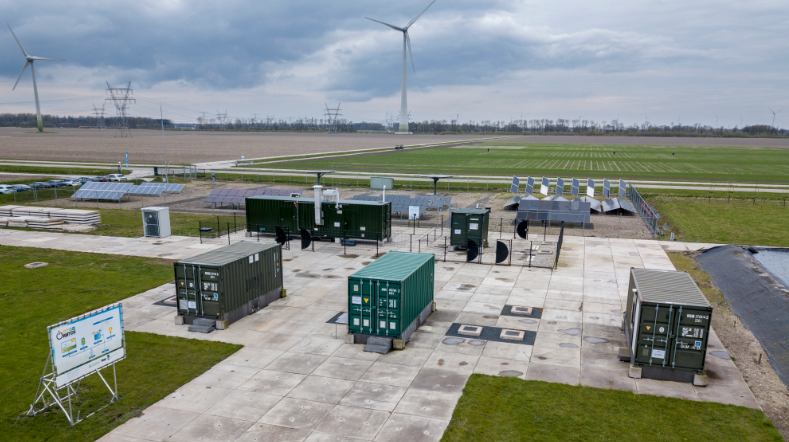
Safe and flexible integration and monitoring of wind farms in a hybrid energy system
Combining renewable energy sources with conversion and storage is a development at full speed in offshore wind. The aim is to have wind farms, solar farms, electrolysis units, and battery systems working together in one sustainable hybrid power plant, maximising the use of the wind farm while minimising the amount of energy required and system costs.
Monitoring and controlling energy flows
What makes this complex is that it involves different energy sources and storage types, which must be able to provide energy at any time. This requires the ability to accurately monitor and control the energy flows between these sources, meaning all cables and other components must be optimally coordinated. In addition, our cybersecurity experts will need to ensure that the networks are extremely well protected against external attacks.
Smoothing peaks
Hybrid power plants play an important role in smoothing out supply peaks. Overproduction of wind energy can cause congestion in the grid. When this is the case, it makes sense to convert surplus electricity into hydrogen through electrolysis and to bring it ashore for direct use or storage. Another possibility is to store electricity in battery systems and to discharge the stored energy when there is little wind.
Accurately aligning supply and demand
To accurately align supply and demand, TNO has developed an Energy Management System (pdf) (EMS) to regulate this type of hybrid energy system. This system enables the precise alignment with market demand, thereby also ensuring the electricity grid is optimally utilised. EMS integrates wind and solar energy sources, an electrolyser for the production of green hydrogen, a battery, and a heat-conversion system for planning and monitoring, using simulation and control models to optimally combine all these elements. It is a unique tool for designers, developers, operators, and network managers.
Many advantages
There are many advantages to align renewable energy sources with conversion and storage. Total energy production increases because overcapacity can be stored. The flexibility of the system allows energy to be stored in batteries when the price is low and used when it is high. EMS can accurately predict the amount of energy generated per hour, resulting in highly efficient production.
The TNO and Wageningen Research SWITCH Lab is a testing station in which we work on innovations in this field, testing innovations on a small scale before applying them on a larger scale. Industrial parties can have their configurations tested in practice at the lab, and develop control strategies for them.
The EU’s MAGPIE (‘sMArt Green Ports as Integrated Efficient multimodal hubs’) project is about creating green ports that use a sustainable energy supply and transport. In this consortium made up of dozens of market and knowledge parties, TNO is contributing to the demonstration of the application of batteries in the port of Rotterdam.
Get inspired
TNO and Jungle AI collaborate to detect cyberattack on wind turbine and improve detection capabilities


OESTER project to advance offshore electricity storage


Wind energy webinars

Webinar: System transformation in offshore renewable supply


SWITCH tackles the energy issues of the future


